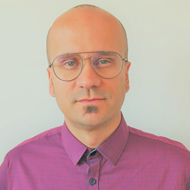
Professor Paulo Steagall will lead the discussion at WSAVA World Congress.
The inequity in access to veterinary medicines faced by vets in Latin America and other countries is to go under the spotlight at the 2022 WSAVA World Congress.
Many vets struggle to access opioid analgesics to treat pain, leading to the unnecessary suffering of millions of companion animals.
During the Congress, Professor Paulo Steagall, co-chair of the WSAVA's Therapeutics Guidelines Group (TGG), will lead a session entitled 'Shaping the Future', which will explore both the causes and consequences of accessing vital medicines.
The session will also see speakers from different parts of the world and TGG members talk about potential solutions in a panel discussion.
It follows the launch of the TGG's first List of Essential Medicines for Cats and Dogs in 2020 – a peer-reviewed list of core and complementary essential medicines designed to support the availability of drugs to perform the minimum standards of care. During his talk, Professor Steagall will call for suggestions, comments and revisions of the current list as part of an 'open audit', before it gets updated in 2023.
Professor Steagall said: “In addition to the welfare issues caused by the problems many colleagues experience in obtaining access to veterinary medicines, we should also consider the frustration this causes them as individuals as they are unable to provide the standard of veterinary care they have been trained to deliver. For a profession already under strain, this is just one more burden.
“We are delighted to be putting this issue in the global spotlight during this year’s WSAVA World Congress and hope that our discussions will help to create practical solutions, supporting pharmacovigilance and helping to mitigate the effects of a growing market for counterfeit pharmaceutical products.”
The WSAVA World Congress takes place in Lima, Peru, in October (29-31) and promises a packed scientific programme or cutting-edge thinking and new trends in companion animal care. For more information, visit wsava.org
Image (C) WSAVA.



 The Veterinary Medicines Directorate (VMD) is inviting applications from veterinary students to attend a one-week extramural studies (EMS) placement in July 2026.
The Veterinary Medicines Directorate (VMD) is inviting applications from veterinary students to attend a one-week extramural studies (EMS) placement in July 2026.